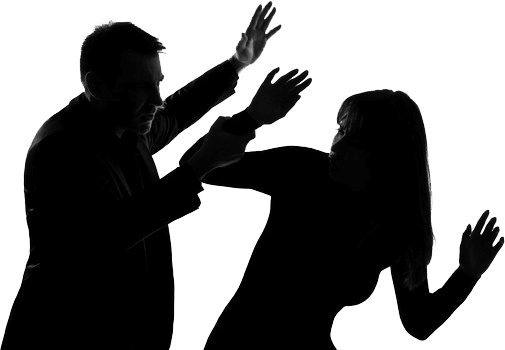Facing a Domestic Violence Case in the San Jose area? Act now; this could put you in jail for a long time. Take Action to Protect Yourself. If you find yourself in the frightening situation of facing a domestic violence case, you have several options. One option is to ignore the case. This is almost always a terrible choice. Once the cops get involved, they do not let it go. They will find you. Simply hoping the case will go away will likely do nothing but harm to you. A better option is to hire an experienced San Jose domestic violence attorney.
Free Domestic Violence Consultation
You should lawyer up with a dedicated attorney, someone who knows Domestic Violence cases well and works hard to defend your rights.

Getting out of jail fast
The first problem is getting out custody, getting out of county jail. In California there are three ways to post bail:
- Through a bail bondsman. If you use a bondsman, you pay a fee to the bondsman. Bondsman often charge 10% of what the total bail amount is. However, many bondsmen will offer you a better rate if you let them know that the attorney on the case sent you to them. This fee is non-refundable. The bondsman then posts bail and takes care of the paperwork for you.
- Through a cash bail. Cash bail is when you have enough cash to pay for the entire bail amount, $10,000 for example, and take it to the Sheriff’s office to bail the person out of jail. After the case is over with you get all your money back.
- Through a property bond. Property bond bail is when you put up your house or some other real estate as bail. A risk with cash bail or property bond bail is that if the person charged, the defendant, fails to show up for court, you could lose all the cash or all the property you put up as bail. A problem with property bonds is that they can take at least a few days to set up and it can cost money to hire someone to help take care of all the paperwork . Another problem with a property bond is if the defendant fails to show up to court, the person who owns the property could lose the property, lose their home. A benefit of property bond is that if bail is set very high, $1,000,000 for example, it far cheaper to use a property bond than pay a bondsman a nonrefundable fee for that kind of bail. Here is a link to a Santa Clara County webpage with information about property bonds.
Emergency Protective Orders (EPROS)
Many times, when someone is arrested for domestic violence, they become subject to an Emergency Protective Order (EPRO). This is a court order.
Emergency Protective Order (EPRO) is a type of restraining order issued by a Judge or Commissioner at any time, whether or not Court is in session. It is intended to function as a temporary restraining order if a person is in immediate and present danger of domestic violence, elder or dependent adult abuse, child abuse, or where a child is in immediate and present danger of being abducted by a parent or relative or where stalking exists. It can also function as an order (when no custody order is in existence) determining temporary care and control of minor children of the above-described endangered person. (Family Code Section 6250) The issuance of an EPRO is not precluded by an arrest.
If a person who is the subject of an EPRO bails out of jail, they must comply with the EPRO. The EPRO usually says you must stay away from the other person and have no contact with them.
Click on this link to see an example of what an EPRO looks like.
Emergency Protective Orders only last for 5 court days or 7 calendar days.
Here is a link to a Santa Clara County Court website that describes Domestic Violence Restraining Orders.
The Court Date
After bailing out of jail, the accused person will get some paperwork. That paperwork will include the accused person’s next court date. It is important to not forget the court date. It is also important to keep all the paperwork and bring it to your attorney, if you hire an attorney.
If you forget about your court date and fail to show up to court, a warrant could go out for your arrest and then you could go back to jail. Plus, if you posted cash or property bond bail, you could lose the cash or the property that was posted as bail.
Criminal Protective Orders (CPOS)
What is a Criminal Protective Order? A Criminal Protective Order is an order a judge or commissioner makes to protect a witness or alleged victim of a crime. It tells the defendant to stay away from and not to hurt, threaten, or communicate with the other person. It is often issued after an Emergency Protective Order.
Once you get to court, the court will make an order concerning your ability to have contact with the alleged victim. There are two general types of Criminal Protective Orders (CPOs):
“No Contact” orders: a CPO that requires a defendant to stay away from, and to have no contact with, a protected person.
“Peaceful Contact” orders: a CPO that permits contact between the defendant and the protected person, but only if the contact is peaceful in every way. To get a Peaceful contact order, usually the alleged victim has to have attended a certain kind of court approved class.
A judge may modify or add restrictions to a CPO in order to address specific issues in a particular case.
Here is a link to the Santa Clara County Court’s website on Criminal Restraining Orders.

The alleged Victim of Domestic Violence does not have to testify against the defendant.
- Right to refuse
Sometimes, in a domestic violence case, the alleged victim will decide that they do not want to cooperate with the prosecution of their loved one. Alleged victims have important rights. Alleged victims can refuse to testify without fear of being put in jail for refusing to testify against the accused. - Show up to court – Do not ignore the subpoena
If you are subpoenaed to court, you must show up, otherwise the court can issue a warrant for your arrest and put you in jail for failing to obey the subpoena. But just because they can order you to show up does not mean they can put you in jail for failing to testify against your loved one. - You cannot be put in jail
You cannot be put in jail for refusing to testify against a defendant if you are the alleged victim in a domestic violence case. A judge can punish you in other ways though, like a fine or ordering you to do uncompensated work for a non-profit organization. - What does the law say on this?
California Code of Civil Procedure (CCP) 1219 (b) states: Notwithstanding any other law, no court may imprison or otherwise confine or place in custody the victim of a sexual assault or domestic violence crime for contempt when the contempt consists of refusing to testify concerning that sexual assault or domestic violence crime. Before finding a victim of a domestic violence crime in contempt as described in this section, the court may refer the victim for consultation with a domestic violence counselor. All communications between the victim and the domestic violence counselor that occur as a result of that referral shall remain confidential under Section 1037.2 of the Evidence Code. Here is a link to a website that that has the whole statute, California Code of Civil Procedure Section 1219.
Can you help prevent the D.A. from filing criminal charges after you are arrested for Domestic Violence?
John (not his real name) was facing such a case. His wife called the cops after a terrible argument and he got into it with her. The San Jose Police Department showed up and arrested him. He called Javier Rios right after bailing out of jail. Good thing he called Javier Rios immediately because Mr. Rios was able to advise the client, get an attorney for the client’s wife and investigate the case. Mr. Rios was proactive and after much work was able to persuade the District Attorney to not file any charges, complete victory for the client and his wife.
Javier Rios has many clients who avoided domestic violence charges, even after they had been arrested for domestic violence. Here is a post from Javier Rios’s Google Website:
DOMESTIC VIOLENCE CASE– DEFENSE WIN!
This client was very happy, elated, in the end. But this person was terrified at first, with good reason. The cops arrested this person, locked ’em up and let this person sit in a cold jail cell until bailed out. Fortunately, this person called me right after bailing out of custody. We came up with a great, time tested strategy. In the end, we managed to convince the DA to NOT FILE ANY CHARGES!

If the cops arrest you for domestic violence, call me right away, right after you bail out of jail. Maybe I will be able to convince the DA to not file charges in your case. If you wait too long to call me, then you might lose a big opportunity to avoid the charges in the first place. CALL ME. LET’S TALK. Because you do not want to underestimate how serious this can be.
Domestic Violence cases are no simple matter. Here is what you can be up against if involved in a domestic violence case:
Domestic violence does not just happen between married people. Any assault or threatening behavior can be considered domestic violence including the following relationships:
- Married
- Separated or divorced
- Cohabitant
- Dating
- Children in common: When children are involved: A case of domestic assault becomes more emotional and more serious when children are involved.
| Statute | Description of Charge | Potential Sentences |
|---|---|---|
| PC 273.5 | Misdemeanor battery of a spouse or intimate partner | Up to 1 year in county jail |
| PC 273.5 | Felony battery of a spouse or intimate partner | Up to 4 years in state prison |
| PC 243 (e)(1) | Misdemeanor for battery of cohabitant | Up to 1 year in county jail |
| PC 273 (a) | Child abuse – Corporal punishment | Up to 3 years in state prison |
PC 273.5
(a) Any person who willfully inflicts corporal injury resulting in a traumatic condition upon a victim described in subdivision (b) is guilty of a felony, and upon conviction thereof shall be punished by imprisonment in the state prison for two, three, or four years, or in a county jail for not more than one year, or by a fine of up to six thousand dollars ($6,000), or by both that fine and imprisonment.
California Penal Code 273.5 covers domestic abuse. This is the abuse to a spouse or intimate partner. This includes people who are in a dating relationship. The relationship between the victim and abuser can be current or previous. The crime of domestic violence is complicated. In some cases, it is a misdemeanor and in other cases, it is a felony. This is determined by the willful act of corporal punishment to the victim. For example, a kick or a punch, squeezing of the arm, neck, or other parts of the body are severe punishments. Depending on the facts of the case and the record of the defendant, the crime may be defined as a felony.
PC 243(e)(1)
When a battery is committed against a spouse, a person with whom the defendant is cohabiting, a person who is the parent of the defendant’s child, former spouse, fiancé, or fiancée, or a person with whom the defendant currently has, or has previously had, a dating or engagement relationship, the battery is punishable by a fine not exceeding two thousand dollars ($2,000), or by imprisonment in a county jail for a period of not more than one year, or by both that fine and imprisonment. If probation is granted, or the execution or imposition of the sentence is suspended, it shall be a condition thereof that the defendant participate in, for no less than one year, and successfully complete, a batterer’s treatment program, as described in Section 1203.097, or if none is available, another appropriate counseling program designated by the court. However, this provision shall not be construed as requiring a city, a county, or a city and county to provide a new program or higher level of service as contemplated by Section 6 of Article XIII B of the California Constitution.
Penalties for domestic battery include a fine not exceeding $2,000 and/or by imprisonment in a county jail for up to 1 year.
PC 273. (a)
Any person who, under circumstances or conditions likely to produce great bodily harm or death, willfully causes or permits any child to suffer, or inflicts thereon unjustifiable physical pain or mental suffering, or having the care or custody of any child, willfully causes or permits the person or health of that child to be injured, or willfully causes or permits that child to be placed in a situation where his or her person or health is endangered, shall be punished by imprisonment in a county jail not exceeding one year, or in the state prison for two, four, or six years.
Penal Code 270 and 273.(a) are statutes that deal with child endangerment. If a person is in a violent domestic situation and they do nothing to remove the child from the situation, they may be found guilty of child endangerment. Further, allowing a child to be physically harmed or hurt and not helping the child, is child endangerment. This does not include normal punishment. Placing a child in time-out, and taking away their toys is not child endangerment. Even spanking is not child endangerment, unless it is done with excessive force and leaves marks on the child.
PENALTIES FOR CHILD ENDANGERMENT?
Punishment for domestic violence includes up to a year in county jail and fines up to $6000 if charged as a misdemeanor. If found guilty of a felony, the sentence is up to four years in state prison, or more depending on the situation.
If convicted of child endangerment as a misdemeanor, the penalties can be:
- Up to a year in county jail
- Informal probation for a minimum of four years
- Completion of a one-year Child Abuse program
- Order of protection to keep the child safe
- Up to $1000 fine
If convicted of child endangerment as a felony, the penalties include (but are not limited to):
- Up to six years in prison
- Up to $10,000 fine
- Formal probation for minimum of four years
- A strike on your record according to the California 3-strike laws.
You need to lawyer up
Do you hire an attorney? Do you represent yourself? Whatever else you do, you should get an attorney.
These cases are tricky. For example, there could be immigration consequences. You could lose your right to legally own or possess a firearm.
If you cannot afford an attorney, inquire about getting a public defender. In Santa Clara County, California, for example, the attorneys in the public defender’s office are excellent. But public defenders typically only represent the indigent. Here is a link to the Public Defender’s webpage.
If you are going to hire an attorney, hire the best local criminal defense attorney you can get.
Get a lawyer who only practices criminal law and get one who is very experienced.
If you do not speak English that well, try to get an attorney who speaks your primary language fluently.
If you are accused of domestic violence, you should lawyer-up. You have rights! Javier Rios, with over thirty years of experience, understands that an innocent person may need to wage a defense against claims of domestic violence. Furthermore, even if someone has committed domestic violence, it is essential to obtain an experienced domestic abuse attorney to stand up for your rights.
Javier Rios has over thirty years of experience in representing people accused of domestic violence. He knows how to negotiate a case for the best deal; he knows how to take it trial and fight for a complete acquittal.




